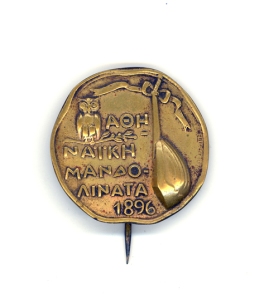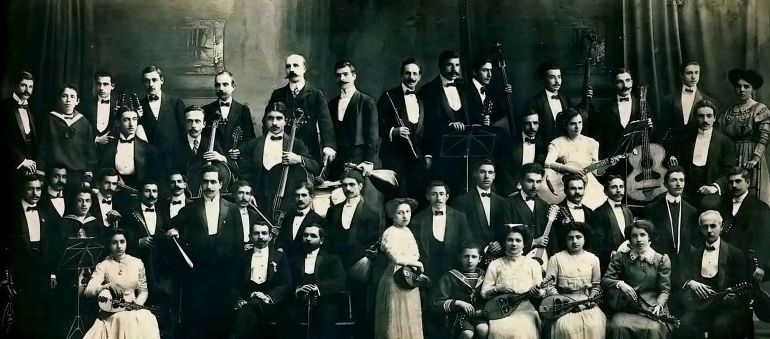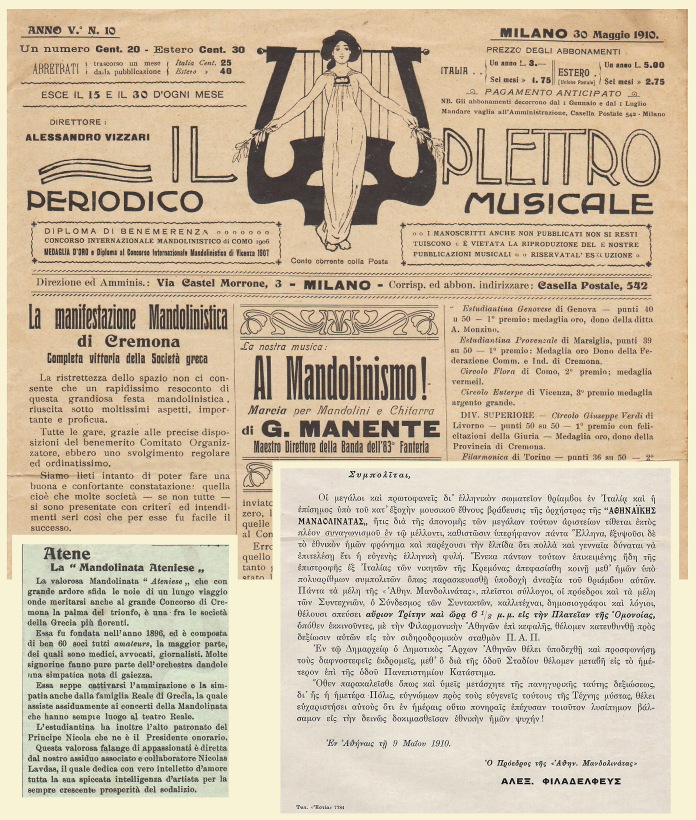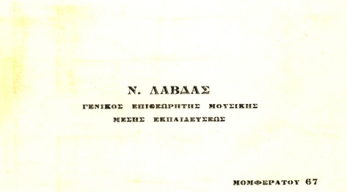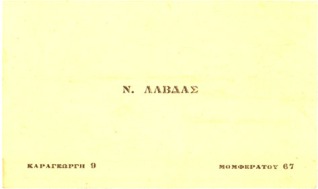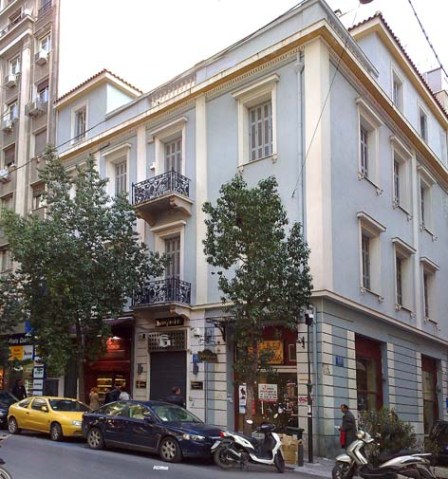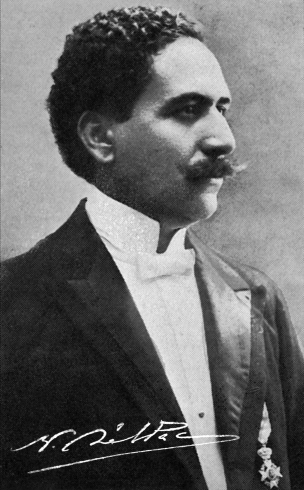 Nikolaos (Nicola) Lavdas (Pitrofos, Andros, Greece, 1879 – Athens, Greece, 30/3/1940) was a Greek conductor, composer and educator. He also had a PhD in Physics from the University of Athens.
Nikolaos (Nicola) Lavdas (Pitrofos, Andros, Greece, 1879 – Athens, Greece, 30/3/1940) was a Greek conductor, composer and educator. He also had a PhD in Physics from the University of Athens.
He was the founder and director of the “Athenian Mandolinata”, one of the oldest music associations and music schools in Greece.
He studied at the Athens Conservatory and he also took private classes with Dionyssios Lavrangas. While still a student, he started working towards the formation of a musical ensemble, and in 1896 he formed a mandolin quartet (2 mandolins, mandola, guitar) with his brother Konstantinos Lavdas, Georgios Psyllas and Vassileios Mitsou.
Four years later he formed an ensemble made up of 20 musicians and gave his first concert in the “Parnassus” hall in Athens on May the 26th, 1900. Among the players was the writer and journalist Zaharias Papantoniou and his brother, the painter Athanassios Papantoniou. The success of this appearance led to the formal establishment of the “Athenian Mandolinata”, and by 1901 the Mandolinata had its own conservatory, teaching various instruments (mandolin, guitar, violin, cello, flute), vocal music and music theory. As the director of the “Athenian Mandolinata” orchestra, he conducted the orchestra in the interim Olympic Games of Athens (1906), for the king of Italy Vittorio Emmanuele (1907) and for Kaiser Wilhelm in Corfu’s “Achilleion” (1910). The orchestra started performing abroad, too, with appearances in Cairo and Alexandria (1907), Smyrna (1908), New York (1912). Τwo more brothers participated: Georgios Lavdas, a military officer who would later be lieutenant general and lead the second army division when Greece got involved in WWII, played in the orchestra, while Xenophon Lavdas, a mechanical engineer who had studied in Liverpool, tuned the pianos. Prince Nicolas of Greece was honorary President of the Mandolinata.
One of the most important moments for the orchestra and its conductor was in 1910, when they received the first prize in Cremona, competing among 32 ensembles from all over Europe, and N. Lavdas received the first prize for conducting.
Here are some excerpts from PLETTRO magazine issues from the 30th of May (top) and 15th of May 1910 (bottom left) giving extensive coverage of the contest. The text on the bottom right, belongs to Alexander Philadelpheus, President of the Mandolinata, informing Athenians of the welcoming celebrations organized for the returning winners, and inviting them to participate.
Nikolaos Lavdas held the post of director of the Orchestra and Conservatory, while Zakharias Papantoniou was its first president, and Prince Nikolaos of Greece its honorary president.

“Orfeus”, published in the Greek language in Egypt. Year 2, issue 14-15, November-December 1911. Abstract from an interview of N. Lavdas ” I will never forget the frenzy of the Cremonese during the eve of the concertone in the great Ponchielli theatre, with 4000 people and 50 maestros from all over Europe in the audience. I had to play the Hellenic Rhapsody and the Cretan dance 4 times. The next day, all of Cremona was asking for copies, which I promised to send but have not managed yet. I had even requests from Bombay, Berlin, Paris, London and the US. The Kaiser himself asked for a copy of the Cretan dance after the Mandolinata played in Corfu, at the Achilleon, so in this case I had to make a fresh handwritten copy for the Emperor”.
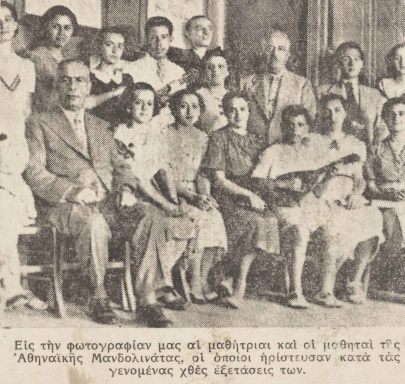
N. Lavdas was also an educator, not only within the Athenian Mandolinata Conservatory, but also in the “Arsakeion School” and also in the Schools of the “Philekpaideftiki” Society (1913-1937); he was also a state-appointed general inspector of music in highschool education (1937-1940).
He wrote mandolin and guitar method books, and a theory of music textbook. Among his students were Dimitris Dounis, Ilias Alessios, Konstantinos Kydoniatis, Spyros Skiadaresis, Miltiades Koutoungos, and his nephew Antonis K Lavdas. Nikolaos Lavdas and his brother Konstantinos Lavdas, were founding members of AEPI (the Greek equivalent to GEMA, BMI etc).
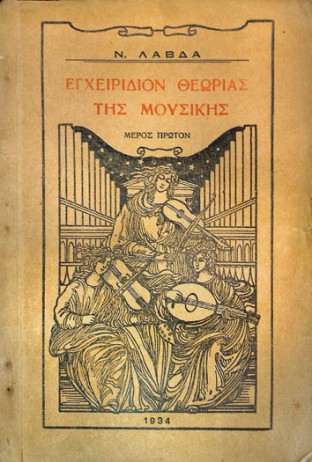
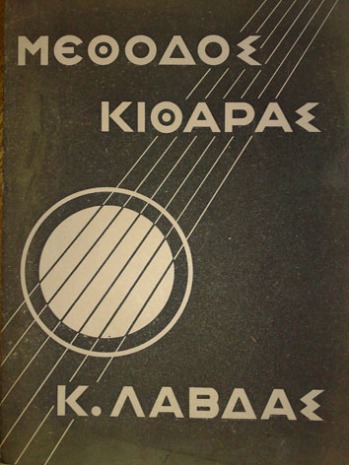
Like so many other artists and scientists he was a Freemason, becoming a Master Mason in 1920.
In recognition of his great achievements in music, he received the Cross of the Savior from King George the first of Greece.
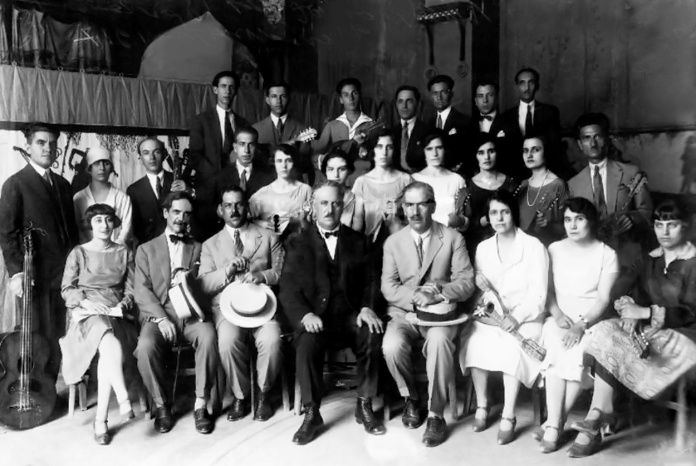
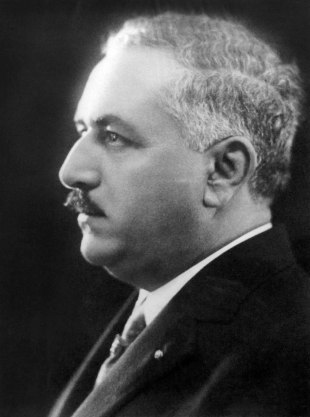
The outbreak of WWII and the death of N. Lavdas in 1940 resulted in the dissolution of the orchestra and the conservatory.
After the war, the archive and repertoire of the Mandolinata was maintained by N. Lavdas’ nephew and student, the composer, musicologist, researcher and critic Antonios K Lavdas. The idea of the revival of the Mandolinata was close to his heart, and there were discussions about it as early as 1950, but the revival was not materialized at the time, mainly for the lack of appropriate collaborators.
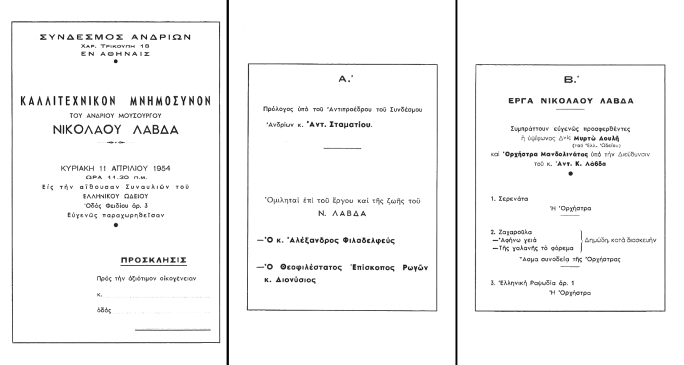
The program of a concert in memory of N Lavdas, from March 11, 1954. Alexander Philadelpheus and Bishop Dionysios Psarianos speak, and Ant.K. Lavdas conducts an (ad hoc?) Mandolin Orchestra, with soprano Myrto Douli.
Recent photograph of the Mandolinata’s building in Athens

